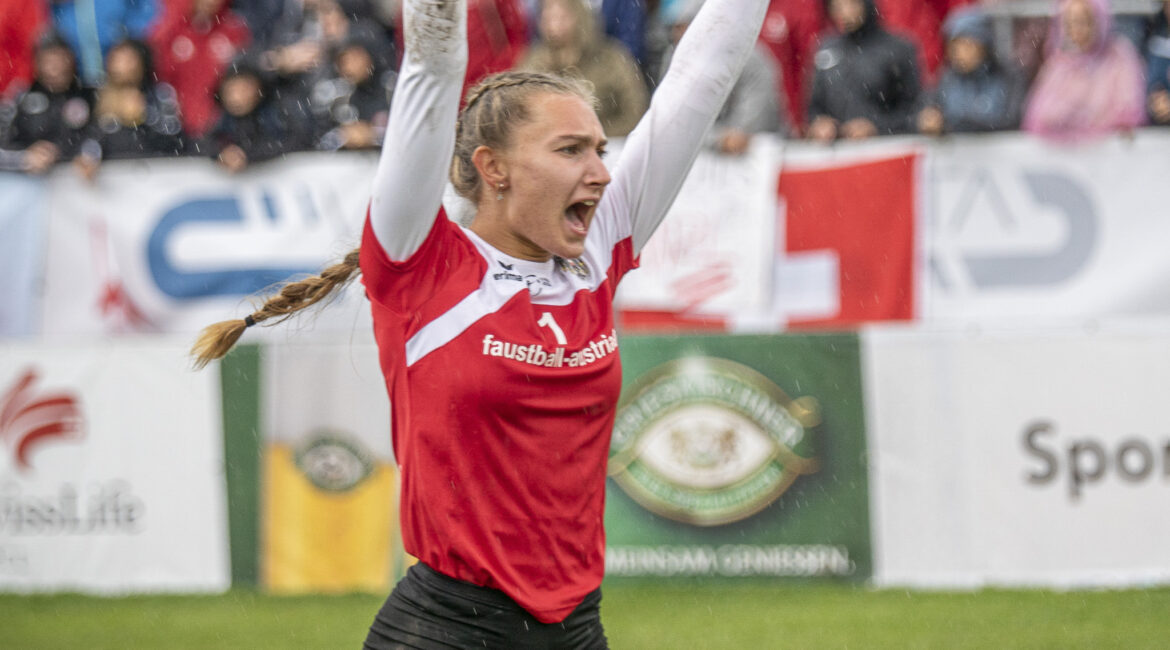At the invitation of the New Zealand Men’s National Team, Anika Hartl travelled together with Emma Dallinger, Jana Pinsker and Elias Eckerstorfer to Timaru, the center of New Zealand Fistball.
We took the opportunity to talk to Anika Hartl and learn more about Fistball in New Zealand.
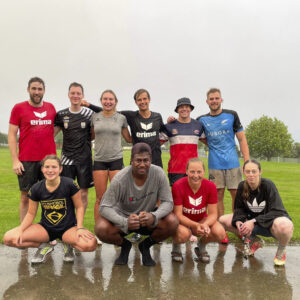
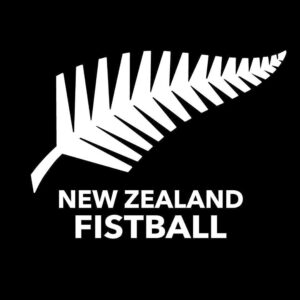
How did the contact to NZ come about?
I had seen the IFA’s call on Facebook that the New Zealand Fistballers were looking for a coach to prepare for the Men’s World Championships. I was thrilled, as I wanted to travel after my A-levels anyway and if that can be combined with the sport of Fistball, all the better.
Why a “whole delegation”?
Word got around and, in the end, there were four of us interested and the New Zealanders didn’t mind. We left on November 1st with an extended layover in Sydney. On November 7th we landed in Christchurch and the New Zealand adventure began for us.
How long did the trip last?
We were on the road from November until mid-February.
What is Timaru like?
Timaru is a tranquil little town with a population of just under thirty thousand and is located on the east coast of the South Island. It is about 150 km southwest of Christchurch on the sea with a great beach. We arrived in the middle of the New Zealand summer. The people welcomed us with open arms and gave us a warm welcome.
Where did you stay?
We stayed in the guest flat of the Kempf family. The Kempfs are a Fistball-loving family with Swiss ancestors. Sam and Jesse were on the 2019 world championship team that placed 11th at the first attempt. René, their father, plays Fistball himself and will be the head of the delegation in Mannheim.
How did the first training session go?
First, we introduced ourselves to each other and started with the basics such as ball control, passing, etc. We felt a lot of commitment from the very first moment. From the very first moment, we sensed a great willingness on the part of the New Zealanders – but fun was never neglected.
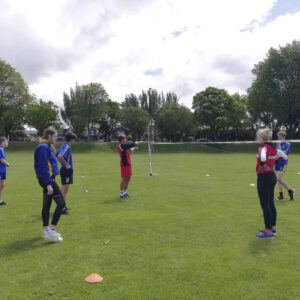
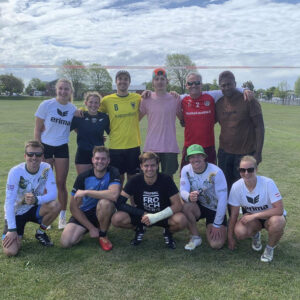
How many times a week did you train?
We trained intensively 3 times a week. There were up to 15 people on the field at any one time. We continued to work on the “basics” of Fistball. All the players are sports enthusiasts and have a good basic fitness level. We played many sets competitively and tried to teach tactical finesse as well as technique. Some of the Fistball players came from Christchurch. Finally, a training camp lasting several days and the selection for the World Championship squad took place. We also held “Training for Beginners” and taster courses at a local school.
Did you also sight see in New Zealand?
Definitely! We trained from Thursday evening to Saturday and in between we visited the South Island. In the holiday period over Christmas, we had a break in training for 3 weeks and during that time we were on the road in the North Island. Our hosts supported us with great tips and lots of information about the sights.
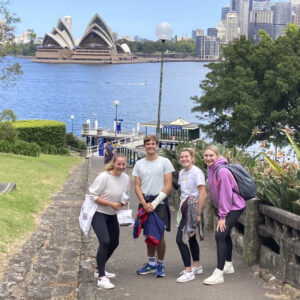
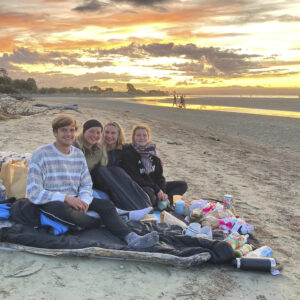
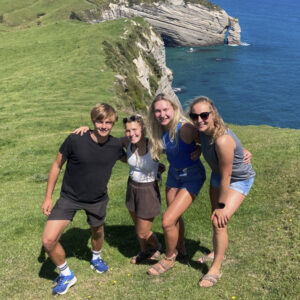
Unfortunately, the last U18 World Championship did not take at the end of 2022. Would you make the long journey to New Zealand for a World Championship or another international Fistball event?
Absolutely! I think it would have been a great experience for the U18 national teams to play a World Championship in New Zealand. It’s a great country with sport-loving, friendly people. I hope that a World Championship will be held in New Zealand soon.
The New Zealand selection teams dominated the Pacific Championships in Australia last October – not only in the men’s, but also in the women’s competition. What distinguishes these teams, which only appeared internationally a few years ago?
From my point of view, it is the willpower, the team spirit and the interest to always learn something new as well as the passion for the sport of Fistball.
Will you go to the World Championships in Mannheim with the NZ men as part of the coaching team?
That is the plan. The NZ team wants to continue to improve internationally and qualify for the 2025 World Games in China if possible. After an 11th place finish in Winterthur in 2019, they want to achieve more in Mannheim.
Our training trip should have laid the foundation for that!
Interview by Roger Willen


 Deutsch
Deutsch